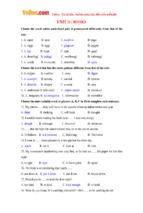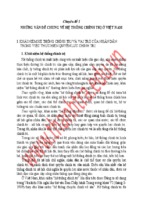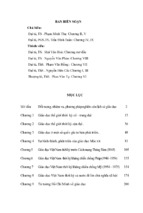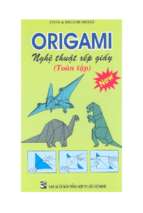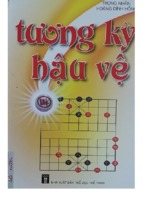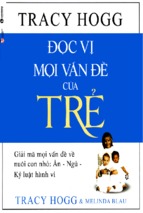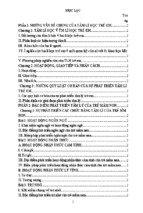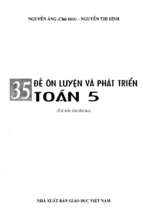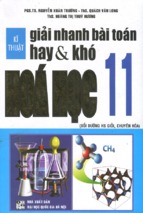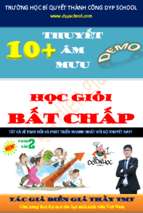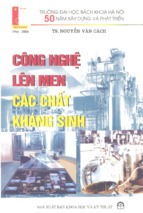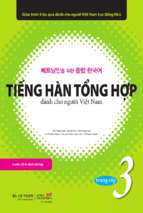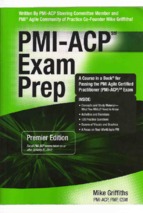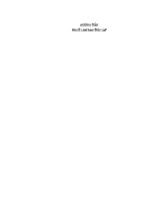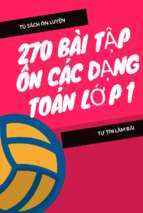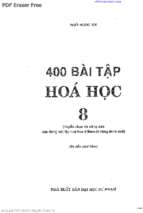About the Tutorial
C++ is a middle-level programming language developed by Bjarne Stroustrup
starting in 1979 at Bell Labs. C++ runs on a variety of platforms, such as
Windows, Mac OS, and the various versions of UNIX.
This tutorial adopts a simple and practical approach to describe the concepts of
C++.
Audience
This tutorial has been prepared for the beginners to help them understand the
basic to advanced concepts related to C++.
Prerequisites
Before you start practicing with various types of examples given in this
tutorial,we are making an assumption that you are already aware of the basics
of computer program and computer programming language.
Copyright & Disclaimer
Copyright 2014 by Tutorials Point (I) Pvt. Ltd.
All the content and graphics published in this e-book are the property of
Tutorials Point (I) Pvt. Ltd. The user of this e-book is prohibited to reuse, retain,
copy, distribute or republish any contents or a part of contents of this e-book in
any manner without written consent of the publisher.
We strive to update the contents of our website and tutorials as timely and as
precisely as possible, however, the contents may contain inaccuracies or errors.
Tutorials Point (I) Pvt. Ltd. provides no guarantee regarding the accuracy,
timeliness or completeness of our website or its contents including this tutorial.
If you discover any errors on our website or in this tutorial, please notify us at
[email protected]
Table of Contents
About the Tutorial .................................................................................................................................... i
Audience .................................................................................................................................................. i
Prerequisites ............................................................................................................................................ i
i
Copyright & Disclaimer............................................................................................................................. i
Table of Contents ..................................................................................................................................... i
1.
OVERVIEW........................................................................................................................... 1
Object-Oriented Programming ................................................................................................................ 1
Standard Libraries ................................................................................................................................... 1
The ANSI Standard .................................................................................................................................. 1
Learning C++............................................................................................................................................ 2
Use of C++ ............................................................................................................................................... 2
2.
ENVIORNMENT SETUP......................................................................................................... 3
Try it Option Online ................................................................................................................................. 3
Local Environment Setup......................................................................................................................... 3
Installing GNU C/C++ Compiler: ............................................................................................................... 4
3.
BASIC SYNTAX ...................................................................................................................... 6
C++ Program Structure: ........................................................................................................................... 6
Compile & Execute C++ Program: ............................................................................................................ 7
Semicolons & Blocks in C++ ..................................................................................................................... 7
C++ Identifiers ......................................................................................................................................... 8
C++ Keywords.......................................................................................................................................... 8
Trigraphs ................................................................................................................................................. 9
Whitespace in C++ ................................................................................................................................. 10
4.
COMMENTS IN C++ ........................................................................................................... 11
5.
DATA TYPES ....................................................................................................................... 13
Primitive Built-in Types ......................................................................................................................... 13
typedef Declarations ............................................................................................................................. 15
ii
Enumerated Types ................................................................................................................................ 16
6.
VARIABLE TYPES ................................................................................................................ 17
Variable Definition in C++ ...................................................................................................................... 17
Variable Declaration in C++ ................................................................................................................... 18
Lvalues and Rvalues .............................................................................................................................. 20
7.
VARIABLE SCOPE ............................................................................................................... 21
Local Variables ...................................................................................................................................... 21
Global Variables .................................................................................................................................... 22
Initializing Local and Global Variables ................................................................................................... 23
8.
CONSTANTS/LITERALS ....................................................................................................... 24
Integer Literals ...................................................................................................................................... 24
Floating-point Literals ........................................................................................................................... 24
Boolean Literals..................................................................................................................................... 25
Character Literals .................................................................................................................................. 25
String Literals ........................................................................................................................................ 26
Defining Constants ................................................................................................................................ 27
9.
MODIFIER TYPES................................................................................................................ 29
Type Qualifiers in C++............................................................................................................................ 30
10. STORAGE CLASSES ............................................................................................................. 31
The auto Storage Class .......................................................................................................................... 31
The register Storage Class ..................................................................................................................... 31
The static Storage Class ......................................................................................................................... 31
The extern Storage Class ....................................................................................................................... 33
The mutable Storage Class .................................................................................................................... 34
11. OPERATORS ....................................................................................................................... 35
iii
Arithmetic Operators ............................................................................................................................ 35
Relational Operators ............................................................................................................................. 37
Logical Operators .................................................................................................................................. 40
Bitwise Operators ................................................................................................................................. 41
Assignment Operators........................................................................................................................... 44
Misc Operators...................................................................................................................................... 47
Operators Precedence in C++ ................................................................................................................ 48
12. LOOP TYPES ....................................................................................................................... 51
While Loop ............................................................................................................................................ 52
for Loop................................................................................................................................................. 54
do…while Loop ...................................................................................................................................... 56
nested Loops ......................................................................................................................................... 58
Loop Control Statements....................................................................................................................... 60
Break Statement ................................................................................................................................... 61
continue Statement .............................................................................................................................. 63
goto Statement ..................................................................................................................................... 65
The Infinite Loop ................................................................................................................................... 67
13. DECISION-MAKING STATEMENTS ...................................................................................... 69
If Statement .......................................................................................................................................... 70
if…else Statement ................................................................................................................................. 72
if...else if...else Statement ..................................................................................................................... 73
Switch Statement .................................................................................................................................. 75
Nested if Statement .............................................................................................................................. 78
The ? : Operator .................................................................................................................................... 81
14. FUNCTIONS ....................................................................................................................... 82
Defining a Function ............................................................................................................................... 82
iv
Function Declarations ........................................................................................................................... 83
Calling a Function .................................................................................................................................. 84
Function Arguments .............................................................................................................................. 85
Call by Value ......................................................................................................................................... 86
Call by Pointer ....................................................................................................................................... 87
Call by Reference................................................................................................................................... 89
Default Values for Parameters .............................................................................................................. 90
15. NUMBERS .......................................................................................................................... 93
Defining Numbers in C++ ....................................................................................................................... 93
Math Operations in C++ ........................................................................................................................ 94
Random Numbers in C++ ....................................................................................................................... 96
16. ARRAYS .............................................................................................................................. 98
Declaring Arrays .................................................................................................................................... 98
Initializing Arrays .................................................................................................................................. 98
Accessing Array Elements ...................................................................................................................... 99
Arrays in C++ ....................................................................................................................................... 100
Pointer to an Array.............................................................................................................................. 103
Passing Arrays to Functions ................................................................................................................. 105
Return Array from Functions ............................................................................................................... 107
17. STRINGS........................................................................................................................... 111
The C-Style Character String ................................................................................................................ 111
The String Class in C++ ......................................................................................................................... 114
18. POINTERS ........................................................................................................................ 116
What are Pointers? ............................................................................................................................. 116
Using Pointers in C++........................................................................................................................... 117
Pointers in C++ .................................................................................................................................... 118
v
Null Pointers ....................................................................................................................................... 119
Pointer Arithmetic............................................................................................................................... 120
Pointers vs Arrays ............................................................................................................................... 124
Array of Pointers ................................................................................................................................. 126
Pointer to a Pointer ............................................................................................................................. 128
Passing Pointers to Functions .............................................................................................................. 130
Return Pointer from Functions ............................................................................................................ 132
19. REFERENCES .................................................................................................................... 135
References vs Pointers ........................................................................................................................ 135
Creating References in C++ .................................................................................................................. 135
References as Parameters ................................................................................................................... 137
Reference as Return Value .................................................................................................................. 138
20. DATE AND TIME............................................................................................................... 141
Current Date and Time ........................................................................................................................ 142
Format Time using struct tm ............................................................................................................... 143
21. BASIC INPUT/OUTPUT ..................................................................................................... 145
I/O Library Header Files....................................................................................................................... 145
The Standard Output Stream (cout) .................................................................................................... 145
The Standard Input Stream (cin).......................................................................................................... 146
The Standard Error Stream (cerr) ........................................................................................................ 147
The Standard Log Stream (clog) ........................................................................................................... 148
22. DATA STRUCTURES .......................................................................................................... 149
Defining a Structure ............................................................................................................................ 149
Accessing Structure Members ............................................................................................................. 150
vi
Structures as Function Arguments....................................................................................................... 151
Pointers to Structures ......................................................................................................................... 153
The typedef Keyword .......................................................................................................................... 155
23. CLASSES AND OBJECTS .................................................................................................... 157
C++ Class Definitions ........................................................................................................................... 157
Define C++ Objects .............................................................................................................................. 157
Accessing the Data Members .............................................................................................................. 158
Classes & Objects in Detail .................................................................................................................. 159
Class Access Modifiers ......................................................................................................................... 163
The public Members............................................................................................................................ 164
The private Members .......................................................................................................................... 165
The protected Members...................................................................................................................... 167
Constructor & Destructor .................................................................................................................... 169
Parameterized Constructor ................................................................................................................. 170
The Class Destructor............................................................................................................................ 173
Copy Constructor ................................................................................................................................ 174
Friend Functions .................................................................................................................................. 179
Inline Functions ................................................................................................................................... 181
this Pointer ......................................................................................................................................... 182
Pointer to C++ Classes ......................................................................................................................... 184
Static Members of a Class ................................................................................................................... 185
Static Function Members .................................................................................................................... 187
24. INHERITANCE................................................................................................................... 190
Base & Derived Classes........................................................................................................................ 190
Access Control and Inheritance ........................................................................................................... 192
vii
Type of Inheritance ............................................................................................................................. 192
Multiple Inheritance ........................................................................................................................... 193
25. OVERLOADING (OPERATOR & FUNCTION) ....................................................................... 196
Function Overloading in C++ ............................................................................................................... 196
Operators Overloading in C++ ............................................................................................................. 197
Overloadable/Non-overloadable Operators ........................................................................................ 200
Operator Overloading Examples ......................................................................................................... 201
Unary Operators Overloading ............................................................................................................. 201
Increment (++) and Decrement (- -) Operators .................................................................................... 203
Binary Operators Overloading ............................................................................................................. 205
Relational Operators Overloading ....................................................................................................... 208
Input/Output Operators Overloading.................................................................................................. 210
++ and - - Operators Overloading ........................................................................................................ 212
Assignment Operators Overloading .................................................................................................... 214
Function Call () Operator Overloading ................................................................................................. 215
Subscripting [ ] Operator Overloading ................................................................................................. 217
Class Member Access Operator - > Overloading .................................................................................. 219
26. POLYMORPHISM.............................................................................................................. 223
Virtual Function .................................................................................................................................. 226
Pure Virtual Functions ......................................................................................................................... 226
27. DATA ABSTRACTION ........................................................................................................ 227
Access Labels Enforce Abstraction ....................................................................................................... 228
Benefits of Data Abstraction ............................................................................................................... 228
Data Abstraction Example ................................................................................................................... 228
Designing Strategy .............................................................................................................................. 230
28. DATA ENCAPSULATION.................................................................................................... 231
viii
Data Encapsulation Example ............................................................................................................... 232
Designing Strategy .............................................................................................................................. 233
29. INTERFACES ..................................................................................................................... 234
Abstract Class Example ....................................................................................................................... 234
Designing Strategy .............................................................................................................................. 236
30. FILES AND STREAMS ........................................................................................................ 238
Opening a File ..................................................................................................................................... 238
Closing a File ....................................................................................................................................... 239
Writing to a File ................................................................................................................................... 239
Reading from a File ............................................................................................................................. 239
Read & Write Example ........................................................................................................................ 240
File Position Pointers ........................................................................................................................... 242
31. EXCEPTION HANDLING ...................................................................................................... 243
Throwing Exceptions ........................................................................................................................... 244
Catching Exceptions ............................................................................................................................ 244
C++ Standard Exceptions ..................................................................................................................... 246
Define New Exceptions ....................................................................................................................... 247
32. DYNAMIC MEMORY ......................................................................................................... 249
The new and delete Operators ............................................................................................................ 249
Dynamic Memory Allocation for Arrays .............................................................................................. 251
Dynamic Memory Allocation for Objects ............................................................................................. 251
33. NAMESPACES .................................................................................................................. 253
Defining a Namespace ......................................................................................................................... 253
The using directive .............................................................................................................................. 254
ix
Discontiguous Namespaces ................................................................................................................. 256
Nested Namespaces ............................................................................................................................ 256
34. TEMPLATES ..................................................................................................................... 258
Function Template .............................................................................................................................. 258
Class Template .................................................................................................................................... 259
35. PREPROCESSOR ............................................................................................................... 263
The #define Preprocessor .................................................................................................................... 263
Function-Like Macros .......................................................................................................................... 264
Conditional Compilation ..................................................................................................................... 264
The # and # # Operators ...................................................................................................................... 266
Predefined C++ Macros ....................................................................................................................... 268
36. SIGNAL HANDLING .......................................................................................................... 270
The signal() Function ........................................................................................................................... 270
The raise() Function............................................................................................................................. 272
37. MULTITHREADING ........................................................................................................... 274
Creating Threads ................................................................................................................................. 274
Terminating Threads ........................................................................................................................... 275
Passing Arguments to Threads ............................................................................................................ 277
Joining and Detaching Threads ............................................................................................................ 278
38. WEB PROGRAMMING...................................................................................................... 282
What is CGI? ........................................................................................................................................ 282
Web Browsing ..................................................................................................................................... 282
CGI Architecture Diagram .................................................................................................................... 282
Web Server Configuration ................................................................................................................... 283
First CGI Program ................................................................................................................................ 284
x
My First CGI program .......................................................................................................................... 284
HTTP Header ....................................................................................................................................... 285
CGI Environment Variables.................................................................................................................. 285
C++ CGI Library .................................................................................................................................... 289
GET and POST Methods ....................................................................................................................... 289
Passing Information Using GET Method .............................................................................................. 289
Simple URL Example: Get Method ....................................................................................................... 290
Simple FORM Example: GET Method ................................................................................................... 291
Passing Information Using POST Method ............................................................................................ 292
Passing Checkbox Data to CGI Program ............................................................................................... 292
Passing Radio Button Data to CGI Program ......................................................................................... 294
Passing Text Area Data to CGI Program ............................................................................................... 296
Passing Dropdown Box Data to CGI Program....................................................................................... 298
Using Cookies in CGI ............................................................................................................................ 299
How It Works ...................................................................................................................................... 299
Setting up Cookies ............................................................................................................................... 300
Retrieving Cookies............................................................................................................................... 301
File Upload Example ............................................................................................................................ 303
39. STL TUTORIAL .................................................................................................................. 306
40. STANDARD LIBRARY......................................................................................................... 309
The Standard Function Library ............................................................................................................ 309
The Object Oriented Class Library ....................................................................................................... 309
xi
1. OVERVIEW
C++
C++ is a statically typed, compiled, general-purpose, case-sensitive, free-form
programming language that supports procedural, object-oriented, and generic
programming.
C++ is regarded as a middle-level language, as it comprises a combination of
both high-level and low-level language features.
C++ was developed by Bjarne Stroustrup starting in 1979 at Bell Labs in Murray
Hill, New Jersey, as an enhancement to the C language and originally named C
with Classes but later it was renamed C++ in 1983.
C++ is a superset of C, and that virtually any legal C program is a legal C++
program.
Note: A programming language is said to use static typing when type checking
is performed during compile-time as opposed to run-time.
Object-Oriented Programming
C++ fully supports object-oriented programming, including the four pillars of
object-oriented development:
Encapsulation
Data hiding
Inheritance
Polymorphism
Standard Libraries
Standard C++ consists of three important parts:
The core language giving all the building blocks including variables, data
types and literals, etc.
The C++ Standard Library giving a rich set of functions manipulating files,
strings, etc.
The Standard Template Library (STL) giving a rich set of methods
manipulating data structures, etc.
The ANSI Standard
The ANSI standard is an attempt to ensure that C++ is portable; that code you
write for Microsoft's compiler will compile without errors, using a compiler on a
Mac, UNIX, a Windows box, or an Alpha.
1
C++
The ANSI standard has been stable for a while, and all the major C++ compiler
manufacturers support the ANSI standard.
Learning C++
The most important thing while learning C++ is to focus on concepts.
The purpose of learning a programming language is to become a better
programmer; that is, to become more effective at designing and implementing
new systems and at maintaining old ones.
C++ supports a variety of programming styles. You can write in the style of
Fortran, C, Smalltalk, etc., in any language. Each style can achieve its aims
effectively while maintaining runtime and space efficiency.
Use of C++
C++ is used by hundreds of thousands of programmers in essentially every
application domain.
C++ is being highly used to write device drivers and other software that rely on
direct manipulation of hardware under real-time constraints.
C++ is widely used for teaching and research because it is clean enough for
successful teaching of basic concepts.
Anyone who has used either an Apple Macintosh or a PC running Windows has
indirectly used C++ because the primary user interfaces of these systems are
written in C++.
2
2. ENVIORNMENT SETUP
C++
Try it Option Online
You really do not need to set up your own environment to start learning C++
programming language. Reason is very simple, we have already set up C++
Programming environment online, so that you can compile and execute all the
available examples online at the same time when you are doing your theory
work. This gives you confidence in what you are reading and to check the result
with different options. Feel free to modify any example and execute it online.
Try the following example using our online compiler option available at
http://www.compileonline.com/
#include
using namespace std;
int main()
{
cout << "Hello World";
return 0;
}
For most of the examples given in this tutorial, you will find Try it option in our
website code sections at the top right corner that will take you to the online
compiler. So just make use of it and enjoy your learning.
Local Environment Setup
If you are still willing to set up your environment for C++, you need to have the
following two softwares on your computer.
Text Editor:
This will be used to type your program. Examples of few editors include Windows
Notepad, OS Edit command, Brief, Epsilon, EMACS, and vim or vi.
Name and version of text editor can vary on different operating systems. For
example, Notepad will be used on Windows and vim or vi can be used on
windows as well as Linux, or UNIX.
The files you create with your editor are called source files and for C++ they
typically are named with the extension .cpp, .cp, or .c.
A text editor should be in place to start your C++ programming.
3
C++
C++ Compiler:
This is an actual C++ compiler, which will be used to compile your source code
into final executable program.
Most C++ compilers don't care what extension you give to your source code, but
if you don't specify otherwise, many will use .cpp by default.
Most frequently used and free available compiler is GNU C/C++ compiler,
otherwise you can have compilers either from HP or Solaris if you have the
respective Operating Systems.
Installing GNU C/C++ Compiler:
UNIX/Linux Installation:
If you are using Linux or UNIX then check whether GCC is installed on your
system by entering the following command from the command line:
$ g++ -v
If you have installed GCC, then it should print a message such as the following:
Using built-in specs.
Target: i386-redhat-linux
Configured with: ../configure --prefix=/usr .......
Thread model: posix
gcc version 4.1.2 20080704 (Red Hat 4.1.2-46)
If GCC is not installed, then you will have to install it yourself using the detailed
instructions available at http://gcc.gnu.org/install/ .
Mac OS X Installation:
If you use Mac OS X, the easiest way to obtain GCC is to download the Xcode
development environment from Apple's website and follow the simple installation
instructions.
Xcode is currently available at developer.apple.com/technologies/tools/.
Windows Installation:
To install GCC at Windows you need to install MinGW. To install MinGW, go to
the MinGW homepage, www.mingw.org, and follow the link to the MinGW
download page. Download the latest version of the MinGW installation program
which should be named MinGW-.exe.
While installing MinGW, at a minimum, you must install gcc-core, gcc-g++,
binutils, and the MinGW runtime, but you may wish to install more.
4
C++
Add the bin subdirectory of your MinGW installation to your PATH environment
variable so that you can specify these tools on the command line by their simple
names.
When the installation is complete, you will be able to run gcc, g++, ar, ranlib,
dlltool, and several other GNU tools from the Windows command line.
5
3. BASIC SYNTAX
C++
When we consider a C++ program, it can be defined as a collection of objects
that communicate via invoking each other's methods. Let us now briefly look
into what a class, object, methods, and instant variables mean.
Object - Objects have states and behaviors. Example: A dog has states color, name, breed as well as behaviors - wagging, barking, and eating.
An object is an instance of a class.
Class - A class can be defined as a template/blueprint that describes the
behaviors/states that object of its type support.
Methods - A method is basically a behavior. A class can contain many
methods. It is in methods where the logics are written, data is
manipulated and all the actions are executed.
Instant Variables - Each object has its unique set of instant variables.
An object's state is created by the values assigned to these instant
variables.
C++ Program Structure:
Let us look at a simple code that would print the words Hello World.
#include
using namespace std;
// main() is where program execution begins.
int main()
{
cout << "Hello World"; // prints Hello World
return 0;
}
Let us look at the various parts of the above program:
1. The C++ language defines several headers, which contain information
that is either necessary or useful to your program. For this program, the
header is needed.
2. The line using namespace std; tells the compiler to use the std
namespace. Namespaces are a relatively recent addition to C++.
6
C++
3. The next line ‘// main() is where program execution begins.’ is a
single-line comment available in C++. Single-line comments begin with //
and stop at the end of the line.
4. The line int main() is the main function where program execution begins.
5. The next line cout << "This is my first C++ program."; causes the
message "This is my first C++ program" to be displayed on the screen.
6. The next line return 0; terminates main() function and causes it to return
the value 0 to the calling process.
Compile & Execute C++ Program:
Let's look at how to save the file, compile and run the program. Please follow the
steps given below:
1. Open a text editor and add the code as above.
2. Save the file as: hello.cpp
3. Open a command prompt and go to the directory where you saved the
file.
4. Type 'g++ hello.cpp' and press enter to compile your code. If there are no
errors in your code the command prompt will take you to the next line
and would generate a.out executable file.
5. Now, type 'a.out' to run your program.
6. You will be able to see ' Hello World ' printed on the window.
$ g++ hello.cpp
$ ./a.out
Hello World
Make sure that g++ is in your path and that you are running it in the directory
containing file hello.cpp.
You can compile C/C++ programs using makefile. For more details, you can
check our ‘Makefile Tutorial’.
Semicolons & Blocks in C++
In C++, the semicolon is a statement terminator. That is, each individual
statement must be ended with a semicolon. It indicates the end of one logical
entity.
For example, following are three different statements:
x = y;
y = y+1;
7
C++
add(x, y);
A block is a set of logically connected statements that are surrounded by
opening and closing braces. For example:
{
cout << "Hello World"; // prints Hello World
return 0;
}
C++ does not recognize the end of the line as a terminator. For this reason, it
does not matter where you put a statement in a line. For example:
x = y;
y = y+1;
add(x, y);
is the same as
x = y; y = y+1; add(x, y);
C++ Identifiers
A C++ identifier is a name used to identify a variable, function, class, module, or
any other user-defined item. An identifier starts with a letter A to Z or a to z or
an underscore (_) followed by zero or more letters, underscores, and digits (0 to
9).
C++ does not allow punctuation characters such as @, $, and % within
identifiers.
C++
is
a
case-sensitive
programming
language.
Thus, Manpower and manpower are two different identifiers in C++.
Here are some examples of acceptable identifiers:
mohd
zara
abc
move_name
a_123
myname50
_temp
j
a23b9
retVal
C++ Keywords
The following list shows the reserved words in C++. These reserved words may
not be used as constant or variable or any other identifier names.
asm
else
new
this
auto
enum
operator
throw
8



